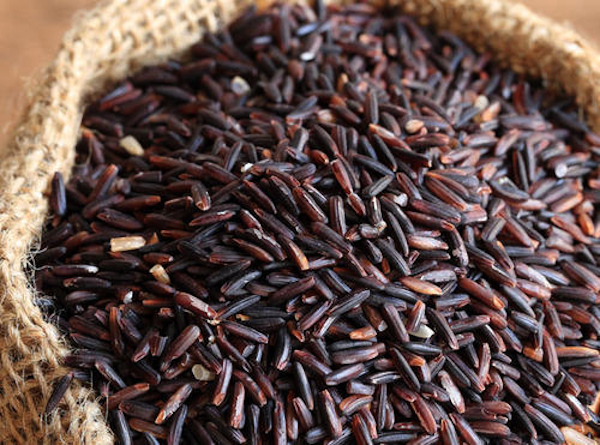Manipur black rice, popularly known as ‘Chakhao’ by the locals, has bagged the Geographical Indication (GI) tag, according to official sources.
The Geographical Indications Registry website also confirmed the report of registering Chakhao in the name of ‘Manipur black rice’ on their official website.
The application for Chakhao was filed by the Consortium of Producers of Chakhao (Black Rice), Manipur and was facilitated by the Department of Agriculture, Government of Manipur and the North Eastern Regional Agricultural Marketing Corporation Limited.
It took more than a year for the registration process including documentation by the team members of the state agriculture department, according to officials. The GI status is an indication that identifies goods as produced from a particular area which has special quality attributable to its geographical origin. GI has great potential to play a major role in trade and there is a possibility of preserving many traditional skills.
On getting the registration, project coordinator MS Khaidem of Manipur Small Farmers’ Agri-Business Consortium said, “Now we can sell seeds as well as grains to any parts of the globe. We will get loyalty if anyone wants to do trading.”
At some point of time, some farming communities of the state had expressed their concern over the reports of cultivating and harvesting the rice variety in other parts of the country after the seeds were transported for various purposes.
Chakhao, a scented glutinous rice which has been in cultivation in Manipur over centuries, is characterised by its special aroma. It is normally eaten during community feasts and is also served as Chakhao kheer.
Chakhao has also been used by traditional medical practitioners as part of traditional medicine. It is sold at Rs 100-120 a kilogram on an average in the Imphal market.
“Now we are targeting to take up the GI process for a high protein content local pea variety-Hawai-Tharak Makhyatmubi,” MS Khaidem added. This local pea variety is sold double the price of other pea varieties in Manipur markets.
In March 2015, Kachai Lemon(Citrus jambheri Lush), a unique lemon variety which contains 45-51 mg/100 ml ascorbic acid – the highest so far available in the realm of citrus – has been accorded GI registration tag. The lemon grows at Kachai village in Manipur’s Ukhrul’s district. Other lemon varieties have only 45-51 ascorbic acid mg/100 ml of juice
Source: HT
Image Courtesy: India Mart
You may also like
-
India Can’t Afford to Remain Stagnant at this Juncture, Says PM Modi; Asks People to Buy Locally-Made Goods
-
Stolen Artefacts to be Returned to India from Scotland Museums
-
Netaji’s Hologram Statue at India Gate
-
10th Century Stone Idol of Goat Head Yogini IllegallyRemoved from A Temple in Lokhari, Banda, UP Being Returned to India
-
UNESCO Inscribes ‘Durga Puja in Kolkata’ on the Representative List of Intangible Cultural Heritage of Humanity
